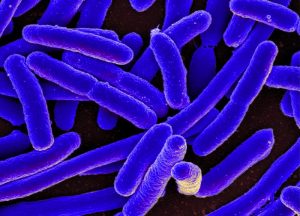Introduction Norovirus outbreaks frequently occur in communities and institutional settings acquiring a particular significance in armed forces where prompt reporting is critical. Here we describe the epidemiological, clinical and laboratorial investigation of a multicentre gastroenteritis outbreak that was detected simultaneously in three Portuguese army units with a common food supplier, Lisbon region, between 5 and 6 December 2017.
 Methods Questionnaires were distributed to all soldiers stationed in the three affected army units, and stool specimens were collected from soldiers with acute gastrointestinal illness. Stool specimens were tested for common enteropathogenic bacteria by standard methods and screened for a panel of enteric viruses using a multiplex real-time PCR assay. Food samples were also collected for microbiological analysis. Positive stool specimens for norovirus were further genotyped.
Methods Questionnaires were distributed to all soldiers stationed in the three affected army units, and stool specimens were collected from soldiers with acute gastrointestinal illness. Stool specimens were tested for common enteropathogenic bacteria by standard methods and screened for a panel of enteric viruses using a multiplex real-time PCR assay. Food samples were also collected for microbiological analysis. Positive stool specimens for norovirus were further genotyped.
Results The three simultaneous acute gastroenteritis outbreaks affected a 31 (3.5%) soldiers from a total of 874 stationed at the three units and lasted for 2 days. No secondary cases were reported. Stool specimens (N=11) were negative for all studied enteropathogenic agents but tested positive for norovirus. The recombinant norovirus GII.P16-GII.4 Sydney was identified in all positive samples with 100% identity.
Conclusions The results are suggestive of a common source of infection plausibly related to the food supplying chain. Although centralisation of food supplying in the army has economic advantages, it may contribute to the multifocal occurrence of outbreaks. A rapid intervention is key in the mitigation of outbreak consequences and in reducing secondary transmission.
Simultaneous norovirus outbreak in three Portuguese bases in the Lisbon region, December 2017
Journal of the Royal Army Medical Corps
António Lopes-João1, J R Mesquita2,3, R de Sousa4, M Oleastro4, C Penha-Gonçalves1and M S J Nascimento3,5
http://dx.doi.org/10.1136/jramc-2019-001242
https://jramc.bmj.com/content/early/2019/07/04/jramc-2019-001242










